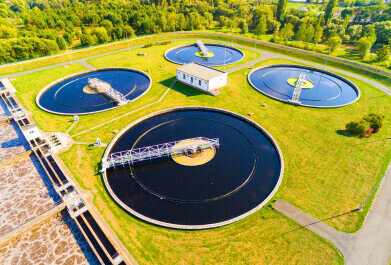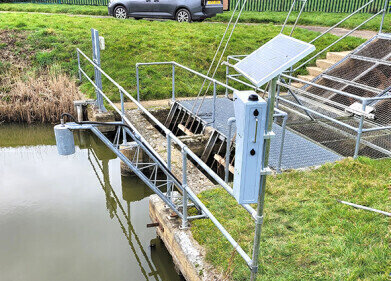Water Monitoring
Ofwat under fire from firms and government
Apr 17 2024
The water regulation authority in the UK, Ofwat, is currently embroiled in a contentious debate over its future role and powers. Recent developments have seen the regulator caught in a tug-of-war between environmental groups demanding stricter oversight and corporations pushing for regulatory leniency to ensure financial viability. These tensions have erupted against the backdrop of the latest data on sewer discharges, revealing a grim record of environmental neglect that has not gone unnoticed.
The year 2023 marked a record high in sewage spills, exacerbating tensions around water management practices. Environmental advocates argue that Ofwat has been too slow to enforce penalties for these discharges, a laxity that they claim undermines the fight against pollution. Meanwhile, corporate entities like Thames Water argue that Ofwat's stringent oversight threatens their financial sustainability, advocating for a reduction in the regulator's powers.
In response to these corporate pressures, the government has proposed a "growth duty" for regulators including Ofwat, which would require them to weigh the economic implications of their decisions alongside environmental and other regulatory duties. This move has sparked a backlash from various stakeholders who view it as a softening of critical environmental protections. Critics, including MPs and charities, warn that such a shift could lead to increased water pollution and higher water bills, as firms might pass on the costs of compliance to consumers.
The proposal has faced significant opposition in the political arena, with the Liberal Democrats spearheading a challenge against what they see as a rushed legislative change lacking adequate scrutiny. A debate initiated in the House of Lords aims to reassess the imposition of the growth duty, amidst fears that it could undermine the regulator's ability to enforce environmental standards.
Experts and activists have voiced concerns about the potential repercussions of diminished regulatory powers. Environmental groups fear that easing the regulatory burden could allow water companies to evade scrutiny, leading to further environmental degradation. Conversely, proponents of the growth duty argue that it is necessary to balance regulatory responsibilities with the economic realities facing water firms, suggesting that without consideration of economic growth, the industry could suffer, potentially impacting service and investment in infrastructure.
The debate over Ofwat's role comes at a critical juncture for environmental regulation in the UK. As the government navigates between economic growth and environmental sustainability, the outcomes of this legislative tussle will likely have long-term implications for the regulation of not only the water sector but other utilities as well. The unfolding scenario underscores the complex interplay between environmental stewardship, regulatory governance, and corporate interests in a rapidly evolving policy landscape.
As stakeholders from all sides await the government's final decision, the pressure on Ofwat to maintain a balanced approach has never been greater. The regulator's ability to enforce environmental laws without stifling economic growth remains a pivotal challenge, reflecting broader global struggles to reconcile economic development with environmental integrity.
Digital Edition
IET 34.2 March 2024
April 2024
Gas Detection - Biogas batch fermentation system for laboratory use with automatic gas analysis in real time Water/Wastewater - Upcycling sensors for sustainable nature management - Prist...
View all digital editions
Events
May 03 2024 Seoul, South Korea
May 05 2024 Seville, Spain
May 06 2024 Minneapolis, MN, USA
May 13 2024 Munich, Germany
May 15 2024 Lund, Sweden



















